
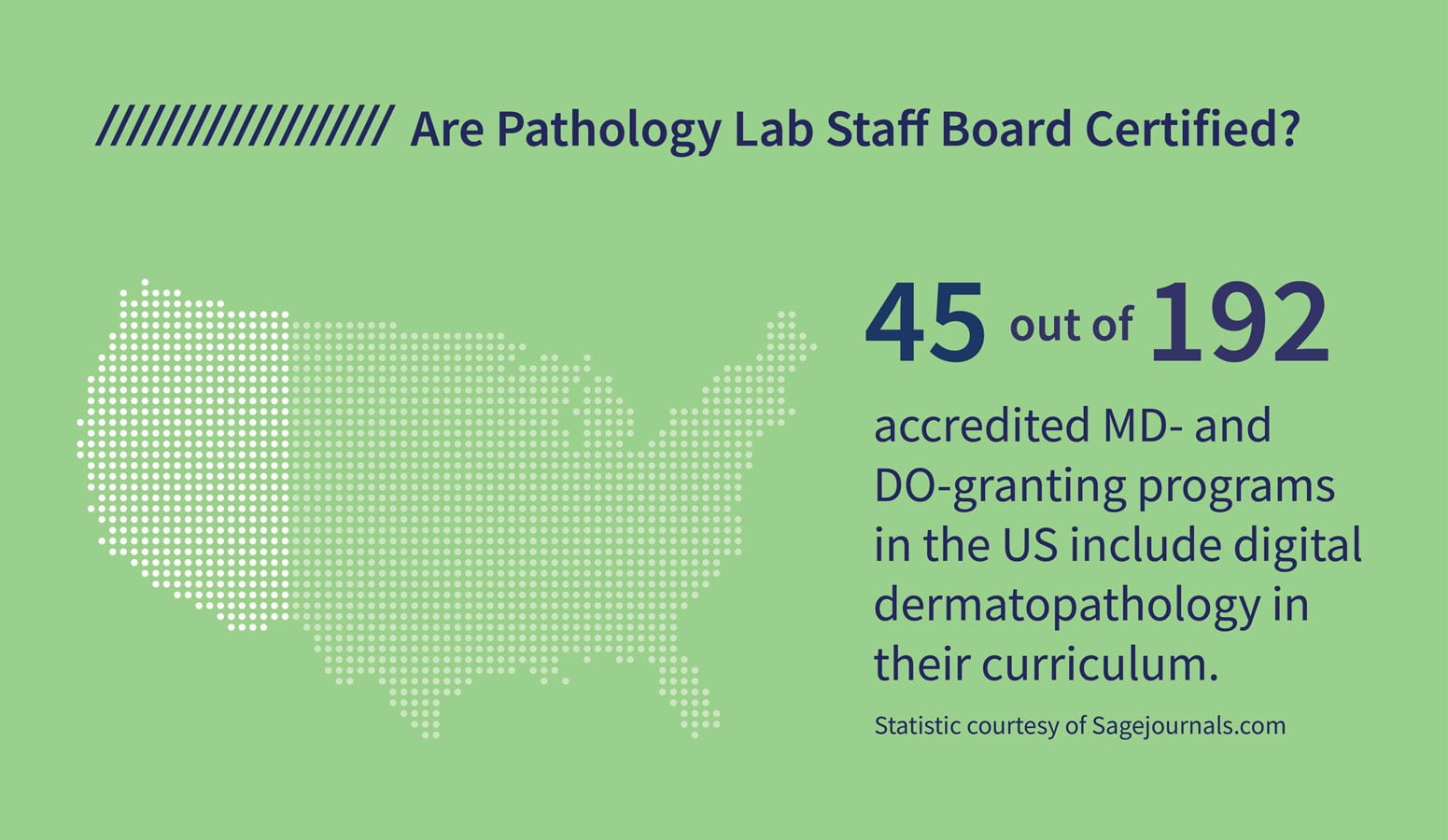
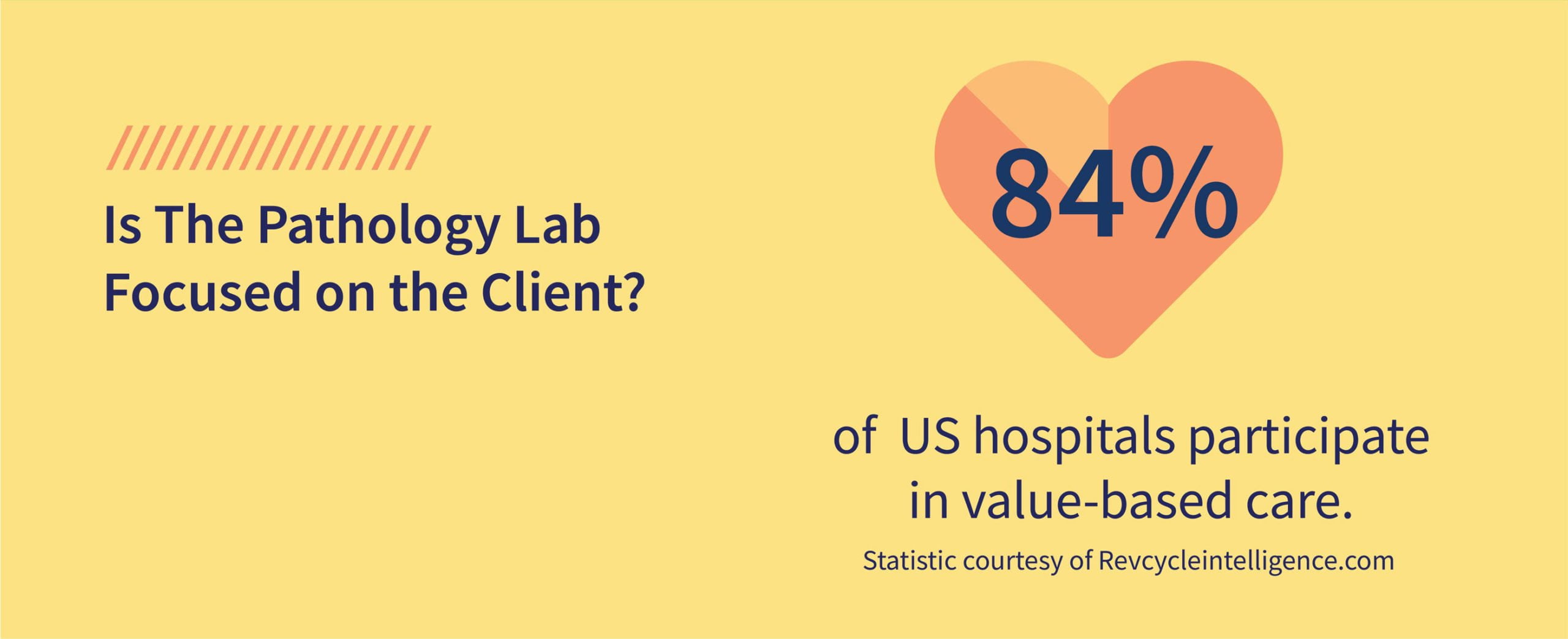
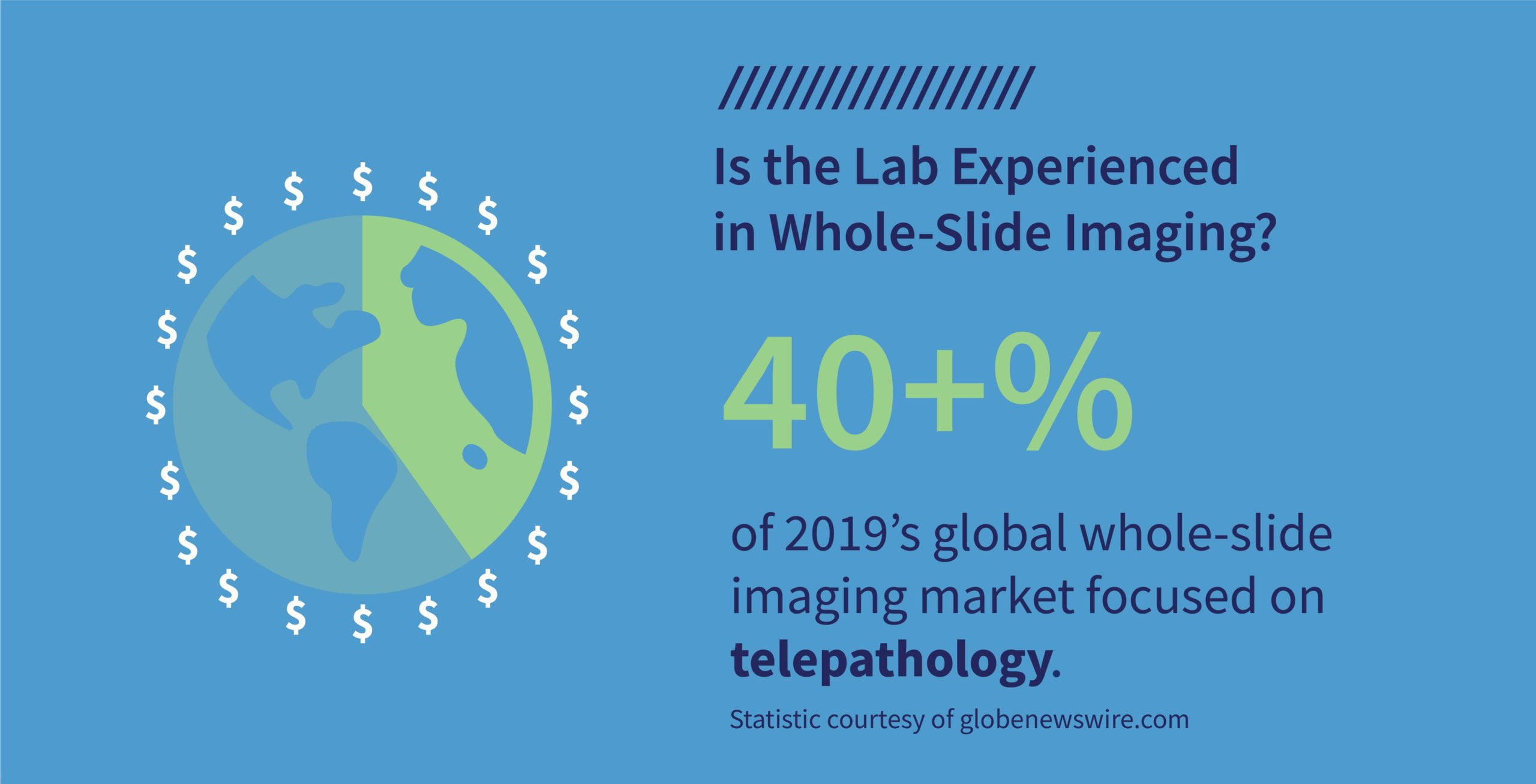
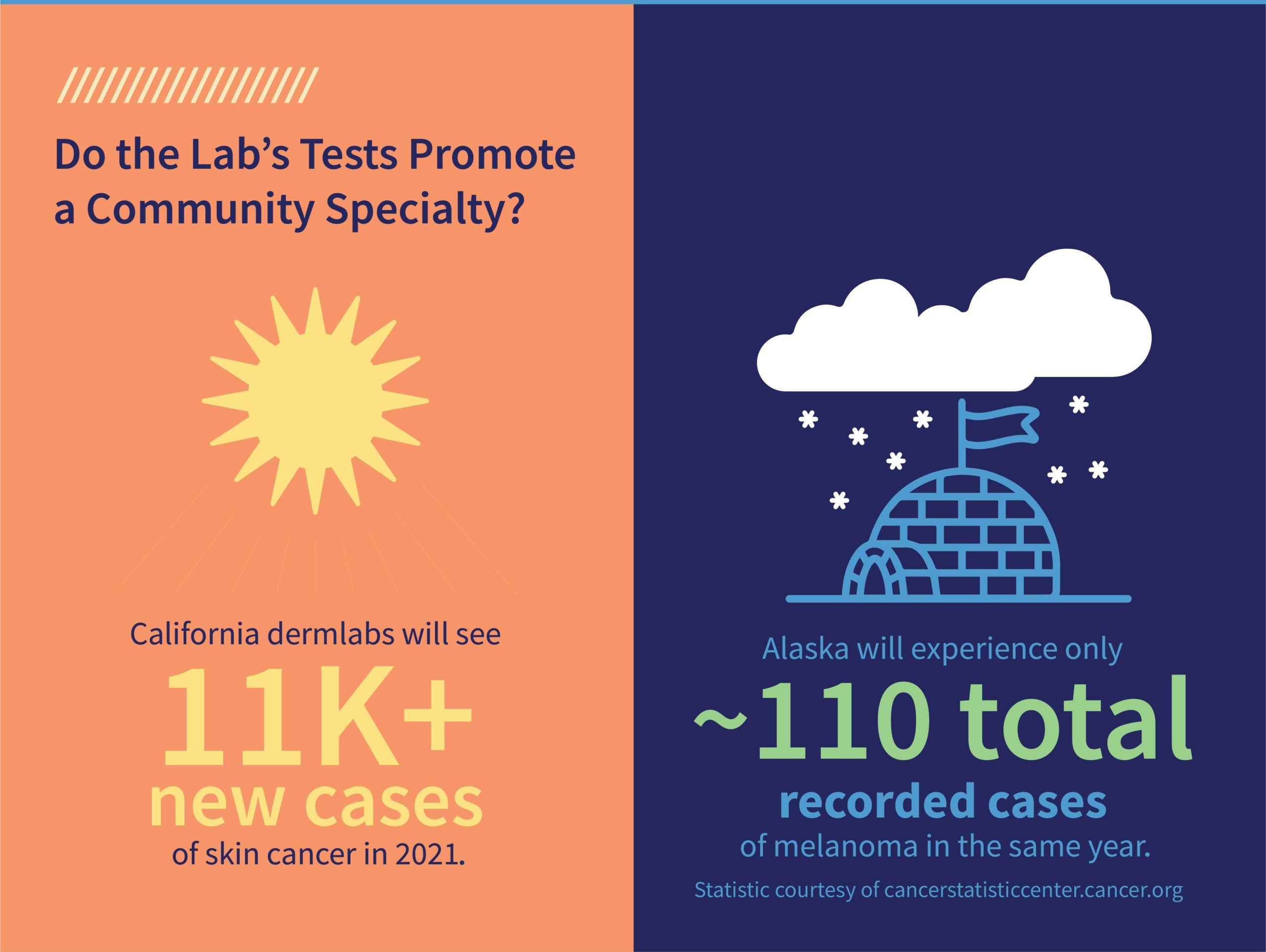
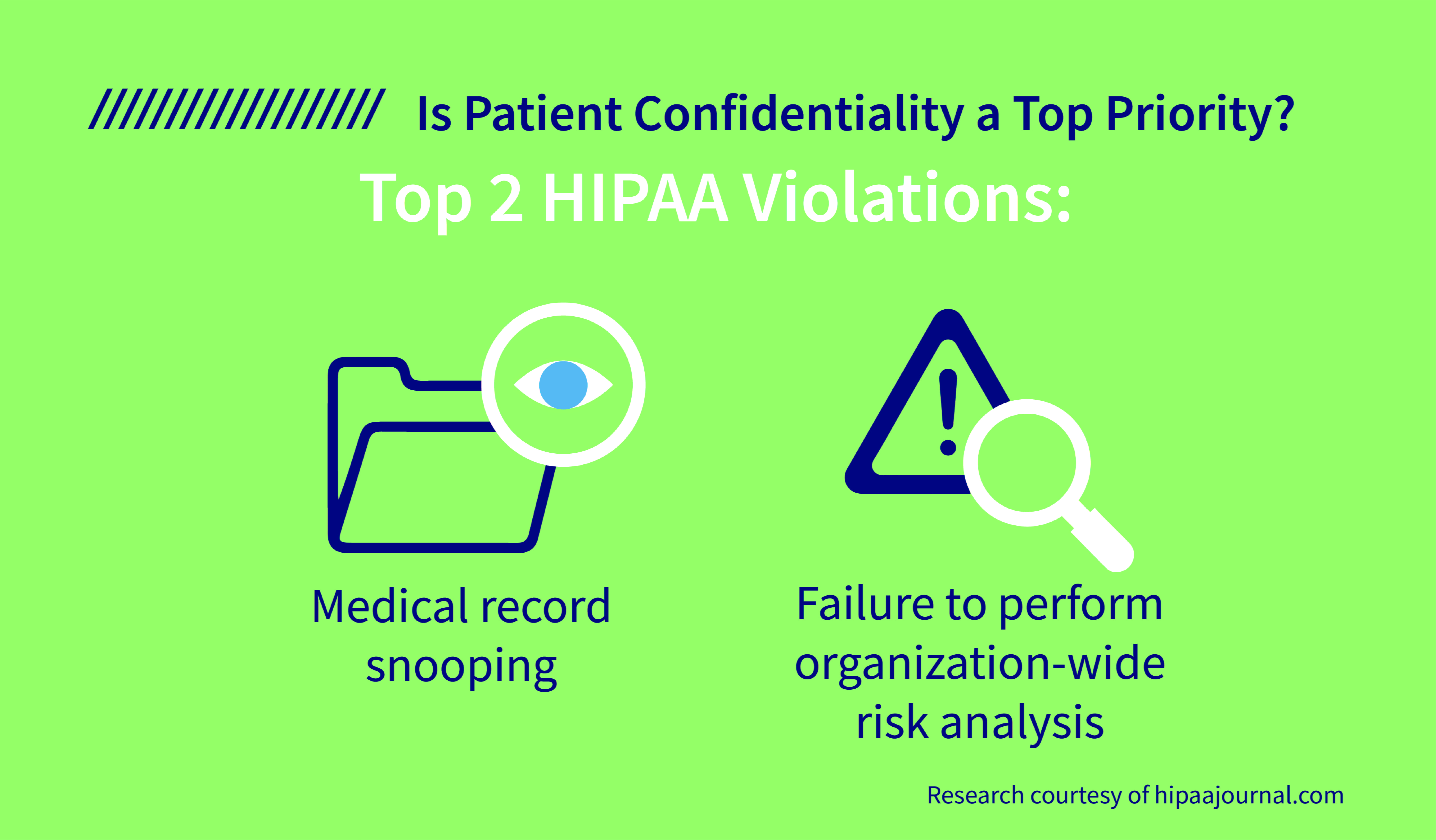
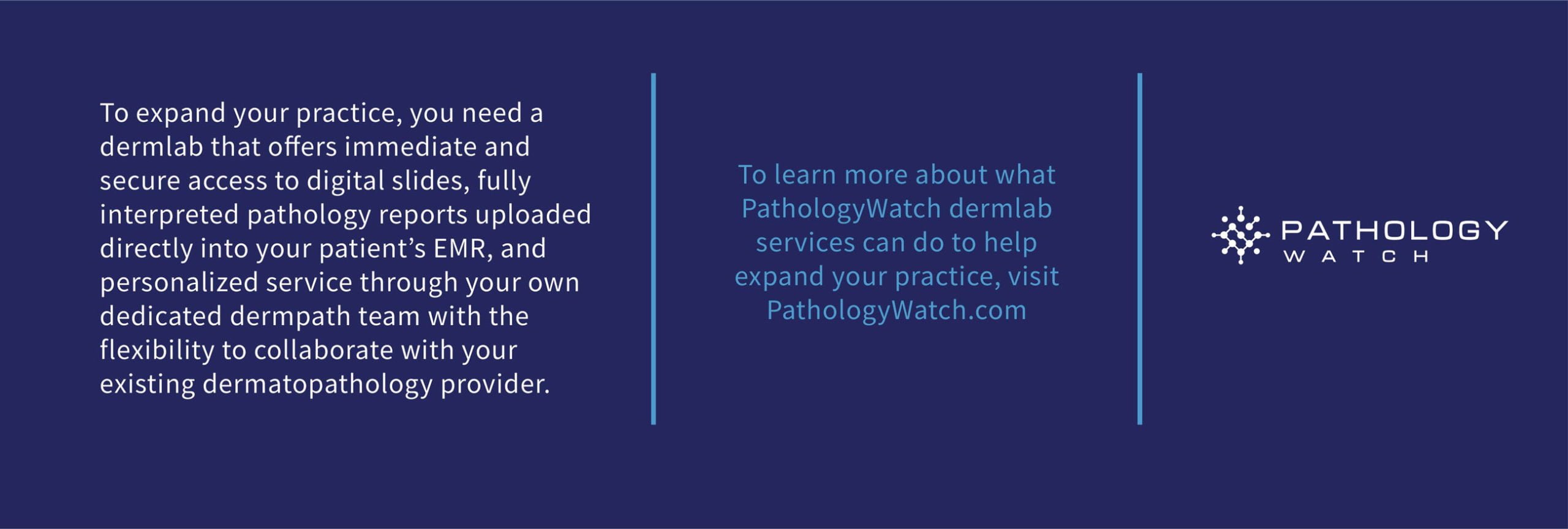
An NIH study found that three out of four respondents agreed that accurate diagnoses can be made with this technology, and over half (59 percent) agreed that the benefits of whole-slide imaging outweigh any concerns. If you plan to expand your practice to incorporate whole-slide imaging into your process, finding the right dermlab is an important first step.
To ensure the ideal match, here are five questions to ask dermatopathology labs.
1. Are they focused on the client?
With more healthcare systems moving to a value-based care model, patient-centered care is essential to ensure the seamless delivery of quick results and effective treatment plans while providing as much information as possible about your patient’s condition. It’s difficult to reassure your patient that their treatment is a priority when the turnaround time for lab results takes several weeks.
2. Are the lab techs board certified?
Check to be sure that the lab technicians and specialists are educated and qualified to do their job. Although jobs as a general lab technician don’t require extensive college training, hands-on experience working in digital pathology is more specialized.
As more labs implement digital technology into their lab processes, it’s important to clarify their expertise in operating the specialized equipment since it varies a great deal from handling glass slides and manually preparing lab test results.
3. Do they have experience using whole-slide imaging?
Digital technology and whole-slide imaging is expanding throughout the dermatopathology industry, with many implementing digital innovations into their processes. As mentioned earlier, make sure the lab you rely on for fast and accurate results knows how to operate this new technology.
Research conducted by Joann G. Elmore, MD, MPH, and her team concludes that navigating digital whole-slide imaging is different from traditional microscopy. In whole-slide imaging, the pathologist is not confined to a physical microscope that requires a glass slide viewed through a lens to view the tissue sample.
“Rather, the digitized images of the histology tissue sections are viewed on a computer screen using a pointing device such as a mouse, trackpad, or dedicated console to manipulate location and magnification of the image (pan and zoom),” says the research team. “The technology may be easily adapted to virtual reality glasses. Given these important differences between digital WSI and traditional microscopy, adoption and effective use of WSI in clinical practice requires exposure to and training using this new format.”
4. What tests do they perform?
Based on the region, some labs have more experience performing certain tests that are more pronounced in your customer base than others. For example, a dermlab in California will likely see more tests for melanoma because it has the most cases of skin cancer (11,450 new cases this year) in the nation. By comparison, Alaska has 110 melanoma cases.
If your practice specializes in treatments more common in the area, you want to partner with a lab that is proficient in those tests.
5. Is patient confidentiality a priority?
The wave of digital technology within the dermatopathology field has provided unprecedented access to patient information. With that abundance of data comes a higher risk of HIPAA violations. Be sure to ask how the lab processes and organizes testing samples and inquire about their procedures for sharing results.
“Using an electronic health record or EHR system offers you much better control over information security,” says Stephen O’Connor. “What’s more, the electronic version of the patient’s chart is now more convenient to share with other concerned parties.”
To expand your practice, you need a dermlab that offers immediate and secure access to digital slides, fully interpreted pathology reports uploaded directly into your patient’s EMR, and personalized service through your own dedicated dermpath team with the flexibility to collaborate with your existing dermatopathology provider.
To learn more about what PathologyWatch digital dermatopathology lab services can do to help expand your practice, click here.

